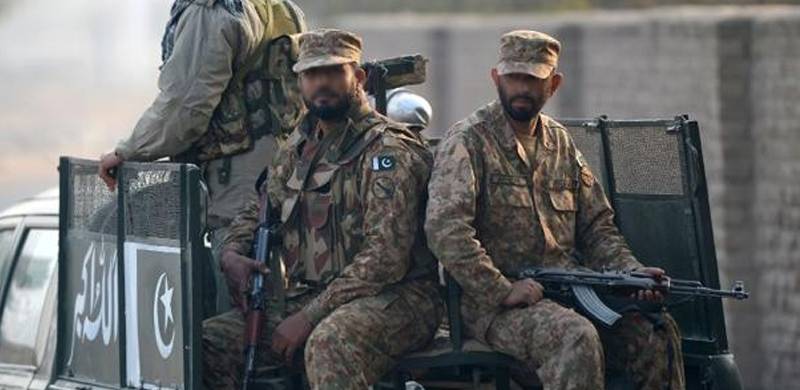
Following a wave of terrorist attacks on the country’s most important installations and the Army Public School (APS) Peshawar in 2014, the then government announced National Action Plan (NAP) on Counter Terrorism in December 2014.
The Pakistan Muslim League-Nawaz (PML-N) government had echoed its resolve for the formation of a joint intelligence directorate (JID) to improve coordination among all intelligence agencies, civil and military, to curb terrorism.
An official of the National Counter Terrorism Authority (NACTA) told Naya Daur that in December 2014, both civil and military leadership was on the same page to curb terrorism from the country and establishing a joint directorate, but it is unclear when the directorate will be functional.
He added that in the first phase, NACTA struggled to establish the directorate and still has not achieved 100 percent success.
“When NACTA started work on the NAP, government funds were an issue. However, later when the government issued funds, gathering all stakeholders under the same roof became a tough task because terrorist attacks had become less over the years. But the recent attack on the Chinese consulate inside a safe zone predicts that the terrorist network still has potential to attack any installation.”
He added that if NACTA succeeds in forming the intelligence directorate, terrorist activities can be countered beforehand.
Another official of the department told that the government had already allocated Rs109.42 million in Budget 2016-17 to combat terrorism.
He added that the military supports formation of the JID and has nominated a serving brigadier and almost 50 officers to be part of the unit. Moreover, the Intelligence Bureau (IB) and provincial police intelligence cover, special branches, have also nominated officers but the formation has not been finalized due to flaws and constraints.
Mohammad Aamir Rana, a security analyst, author and head of the Pakistan Institute of Peace studies (PIPS) told that the formation of the JID was vital since it could counter a potential terror attack beforehand because all intelligence agencies will work together as a network.
On major hurdles in way of the JID, Rana said that funds were not a problem since NACTA had rich resources. He said that main reason was that both the intelligence agencies and the establishment have reservations over JID being headed by NACTA, which is a civil institution. In such circumstances, Rana added, formation of the JID was not possible.
“Both civil and military establishment should develop mutual confidence and process plans together to counter terrorism,” Rana added.
The Pakistan Muslim League-Nawaz (PML-N) government had echoed its resolve for the formation of a joint intelligence directorate (JID) to improve coordination among all intelligence agencies, civil and military, to curb terrorism.
An official of the National Counter Terrorism Authority (NACTA) told Naya Daur that in December 2014, both civil and military leadership was on the same page to curb terrorism from the country and establishing a joint directorate, but it is unclear when the directorate will be functional.
He added that in the first phase, NACTA struggled to establish the directorate and still has not achieved 100 percent success.
“When NACTA started work on the NAP, government funds were an issue. However, later when the government issued funds, gathering all stakeholders under the same roof became a tough task because terrorist attacks had become less over the years. But the recent attack on the Chinese consulate inside a safe zone predicts that the terrorist network still has potential to attack any installation.”
He added that if NACTA succeeds in forming the intelligence directorate, terrorist activities can be countered beforehand.
Another official of the department told that the government had already allocated Rs109.42 million in Budget 2016-17 to combat terrorism.
He added that the military supports formation of the JID and has nominated a serving brigadier and almost 50 officers to be part of the unit. Moreover, the Intelligence Bureau (IB) and provincial police intelligence cover, special branches, have also nominated officers but the formation has not been finalized due to flaws and constraints.
Mohammad Aamir Rana, a security analyst, author and head of the Pakistan Institute of Peace studies (PIPS) told that the formation of the JID was vital since it could counter a potential terror attack beforehand because all intelligence agencies will work together as a network.
On major hurdles in way of the JID, Rana said that funds were not a problem since NACTA had rich resources. He said that main reason was that both the intelligence agencies and the establishment have reservations over JID being headed by NACTA, which is a civil institution. In such circumstances, Rana added, formation of the JID was not possible.
“Both civil and military establishment should develop mutual confidence and process plans together to counter terrorism,” Rana added.
